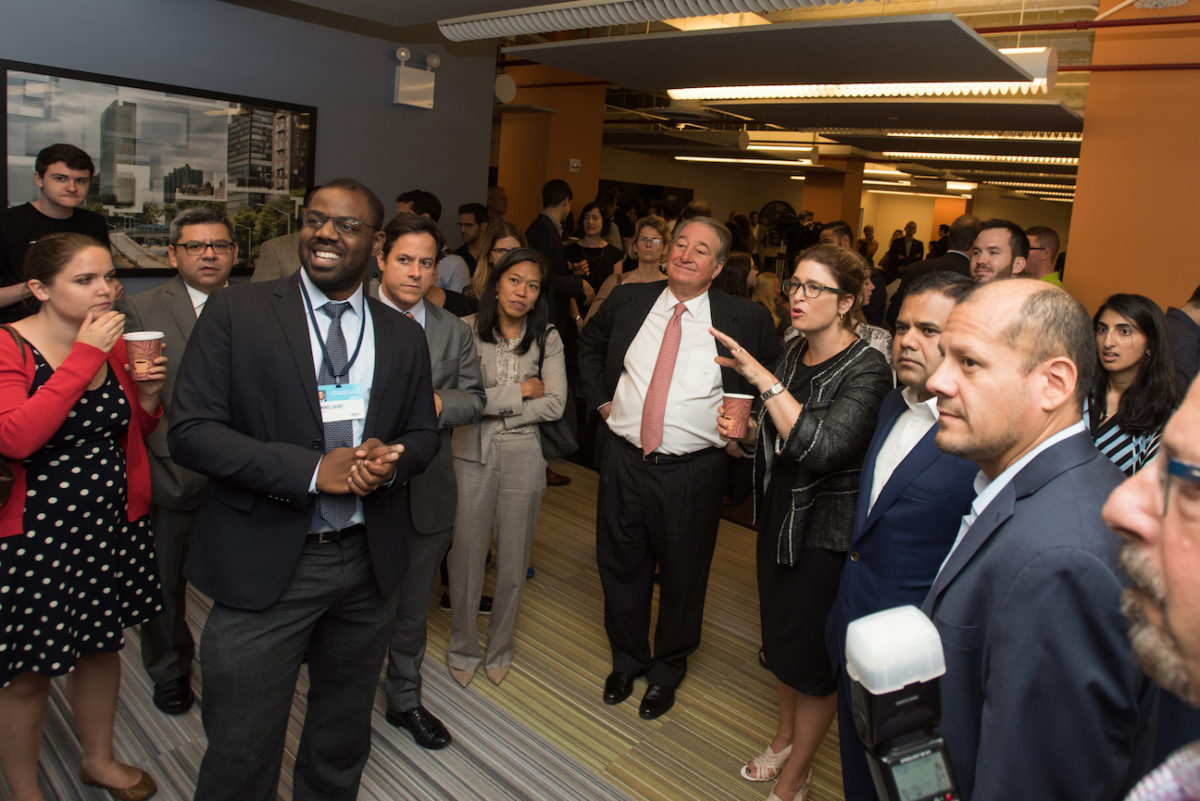When we last spoke with Donnel Baird of BlocPower at the ribbon-cutting ceremony for the Hub @ Grand Central Tech, we couldn’t help but think, Wow, yet another program for startups addressing urban challenges.
The program joins a growing list of similar initiatives, all located in Brooklyn, including Urban-X, the Urban Future Lab at NYU, and the Urban Tech Hub at New Lab.
As Jiro Otsuka of Urban Future Lab told Technical.ly earlier this month, the proliferation of all these accelerators and incubators has at times created some confusion. There’s some distinction between the programs, as Otsuka pointed out, in what niches and development stages they seek out. For instance, Urban-X guides companies in building initial prototypes, while the Urban Tech Hub works with companies seeking to scale after launching their initial products. The Hub @ Grand Central isn’t focused on physical products at all, but rather software.
That’s a whole lot of “Urban” and “Hub” to keep track of.
But beyond that, how do all these programs, and the companies that come out of them, work together within the area’s budding “smart cities” ecosystem? We spoke with Robinson Hernandez, the executive director of the Hub @ Grand Central Tech, for more insight.

First of all, Hernandez emphasized that the Hub, despite its location, is not Manhattan-centric.
“We want to make sure all five boroughs are represented,” he said. “The majority of our employees do not come from Manhattan.” (Hernandez definitely doesn’t have a Manhattan bias. He’s a Queens guy, having grown up in Astoria and now living in Ridgewood.)
As a program of the New York City Economic Development Corporation, the Hub is a peer of the Urban Tech Hub, which is also NYCEDC-backed. Beyond that, Hernandez says, the program is seeking to develop partnerships with similar initiatives in other boroughs, including an incubator in Staten Island.
He also pointed to TransitScreen, a D.C.-based company that provides real-time transportation information, whose New York office is located in the Hub. One of the company’s first target customers in New York, Hernandez said, is affordable housing developments in the Bronx. Its information system is bilingual, operating in English and Spanish, which is a necessity for that market, which has many Latino residents.
That interplay among the boroughs will be critical to boosting New York City’s prowess in the field of urban-focused tech, Hernandez said.
“We have to have a one-city mentality, a one-city approach,” he said. “Or else we’re going lose to Boston, Copenhagen, and Amsterdam, who are powerhouses in this field.”
Speaking of cities abroad, just as the Urban Future Lab attracted international startups for its Urban Future Competition, so has the Hub @ Grand Central Tech. Its members include companies from France, Denmark and the United Kingdom. Closer to home, there’s Memphis-based ZoomThru, which provides analytics to garage operators to make parking more efficient and will soon be moving into the Hub.
That’s the goal of all these “smart cities” programs, Hernandez said: to make New York a destination for companies doing similar work. For instance, the presence of BlocPower, with its strong growth and star pedigree, has prompted other companies to inquire about the program. Like Baird, Hernandez sees the Hub’s niche as a potentially strong jobs engine for the city as a whole.
“It’s about providing jobs, providing opportunities,” he said. “To people from Brooklyn, too.”







